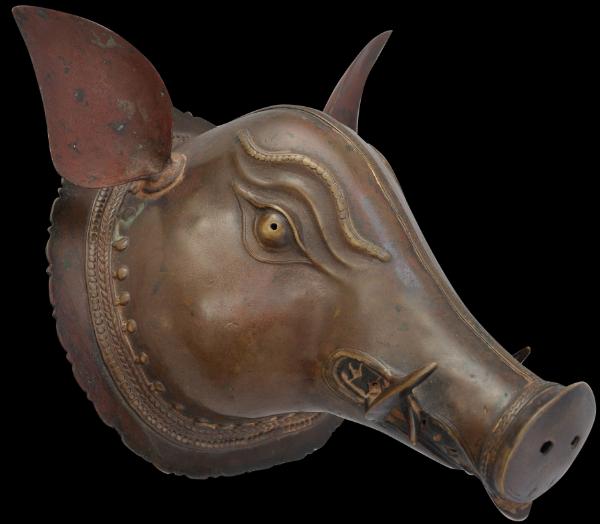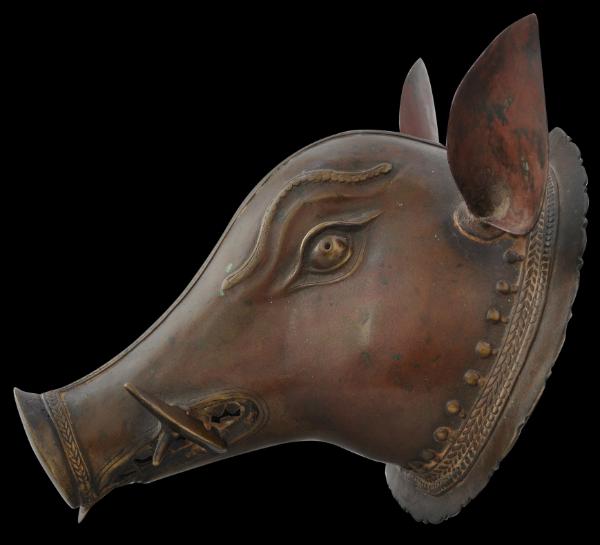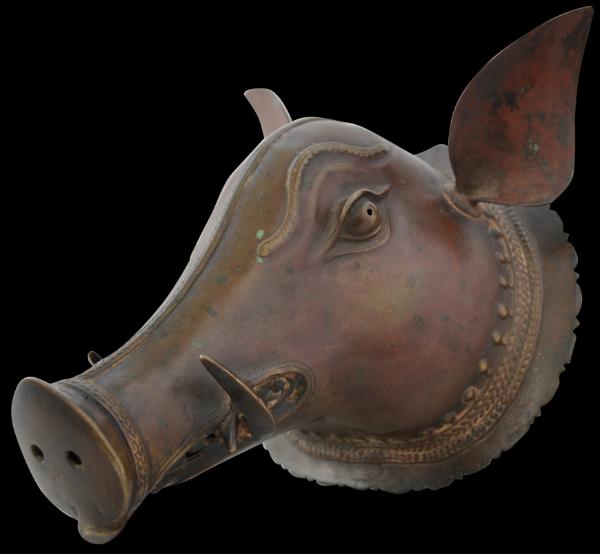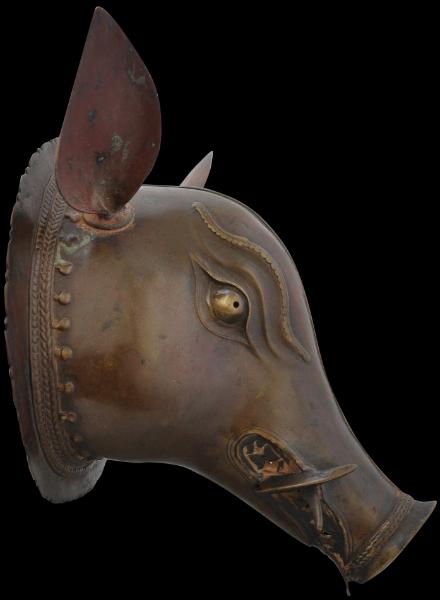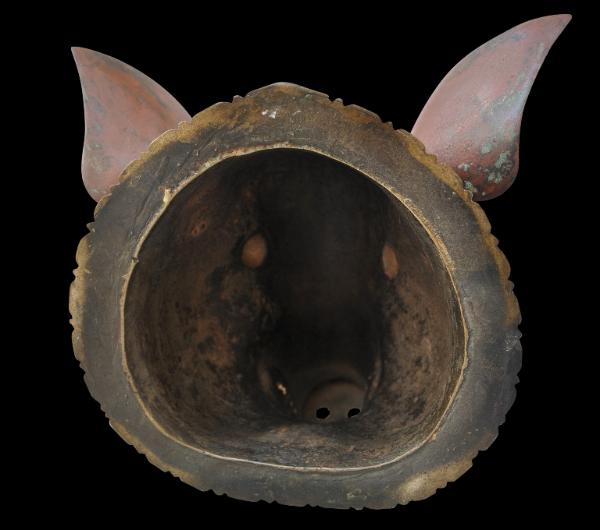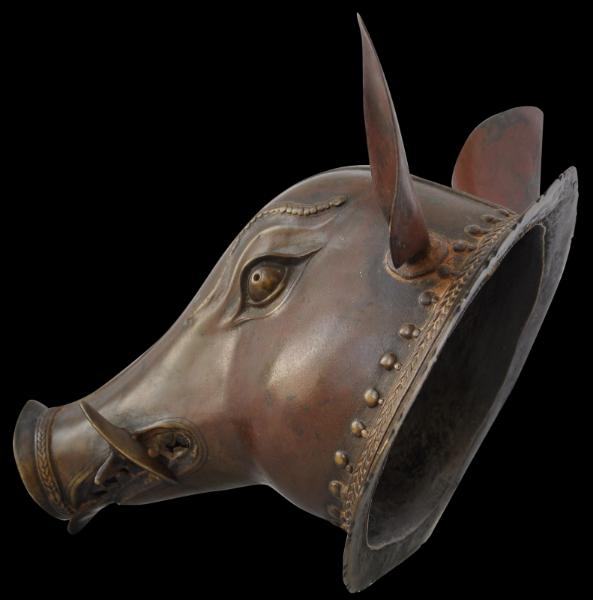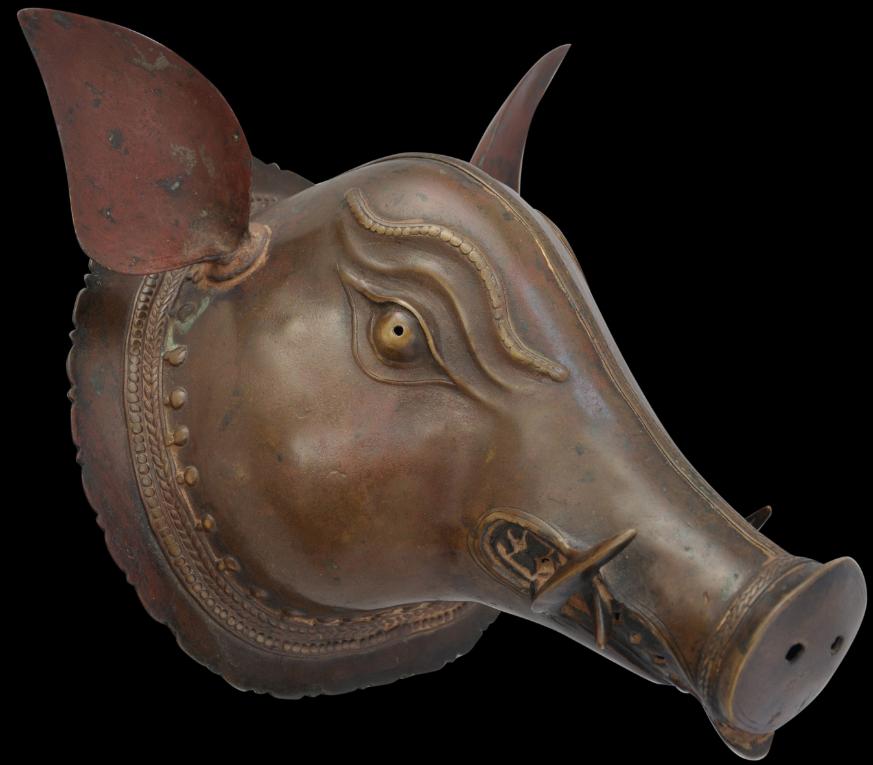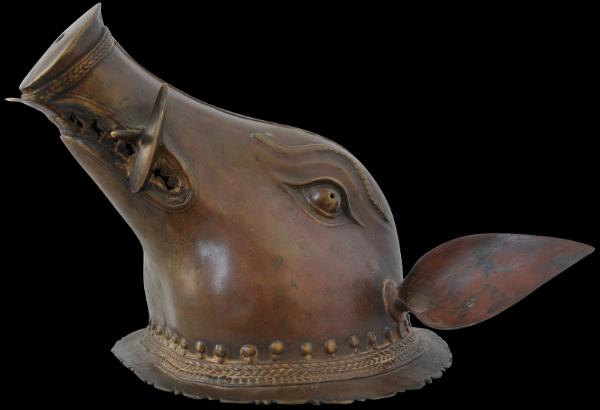
Panjurli Bhuta Mask, Karnataka
Fine Brass Bhuta (Muga) Mask of Panjurli (the Tusked Boar)
South Karnataka, India
19th century
length (approx.): 27cm, width: 20cm, weight: 1,628g
This exceptionally well cast bhuta mask image is of Panjurli, the boar. ‘Bhuta’ is a Sanskrit word that means ‘passed away’ or ‘spirit’. The term is also used to refer to the ancestor cult practised in the Tulu Nadu region of southern coastal Karnataka, India (Rond, 2011). Bhuta ceremonies (bhuta kola) do not feature the worship of inanimate idols but the interaction between the audience and an oracle who receives the invoked spirit. Such ceremonies typically took place once a year and were sponsored by upper-class families usually from the Kshatriya caste. Dancers as oracles wore masks such as this as part of their elaborate head gear and costumes. Once the ceremonies were over, the masks were returned to the temples (sthaana) where they were worshipped as representations of the spirits.
The image has a fierce, determined look with curved brows; bulging, pierced eyeballs; and a long snout with two pierced nostrils, the underside of which is carved with a partially opened mouth filled with triangular-shaped teeth and two pairs of superbly rendered tusks, and a poking tongue. The ears are prominent and with a pleasing shape. The aperture of the mask has a broad flat rim with a decorative scalloped/serrated edge. The neck, snout end and top of the snout all have been cast with decorative braids.
The mask has been cast in brass in three pieces – the head and the two ears – using the lost-wax process. It is in excellent condition with no repairs, dents or cracks. It has a superb chocolate-brown patina.
Probably, Panjurli was worshipped since the origin of the bhuta cult and was worshipped as the spirit of the wild animals that destroyed villages’ crops. Large numbers of boars invaded cultivated areas in Tulu Nadu hence the development of some kind of spirit that could be appeased to avoid this calamity.
Later, Panjurli was incorporated into the local Hindu pantheon as Parvati’s pet who spoiled the harmony of her garden on Mount Kailash. Shiva became so annoyed with Parvati’s boar that he killed it. Parvati was saddened at the loss of her pet and so to make amends, Shiva brought it back to life as a spirit that he sent to earth as a protective force.
References
Beltz, J., et al, Wenn Masken Tanzen: Rituelles Theater und Bronzekunst aus Sudwestindien, Museum Rietberg, 2009.
Rond, F., Bhuta: Masques & Objets Rituels des Espirits/Masks & Ritual Objects of the Spirits, Karnataka, Inde di Sud, Galerie le Toit du Monde/Indian Heritage, 2011.
Inventory no.: 1420
SOLD

